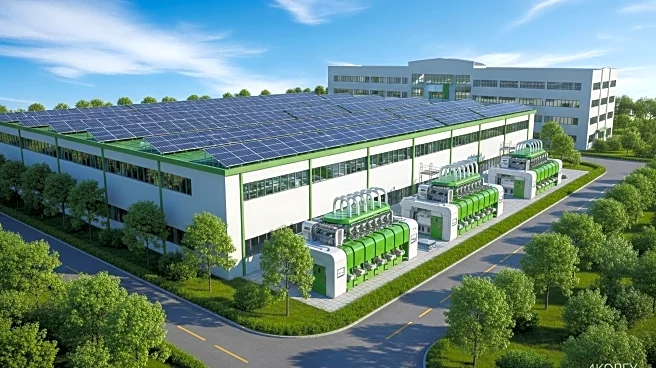What's Happening?
The H&M Foundation has announced its support for the 'Future Forward Factories' initiative, aimed at enhancing sustainability in textile production. This initiative focuses on upgrading Life Cycle Assessment (LCA) data to better evaluate environmental impacts within the industry. The Textile Exchange has issued a warning to the sector, emphasizing the need for improved data verification processes. The Sustainable Apparel Coalition's Social & Labor Convergence Program (SLCP) is sharing insights from its previous work to address these challenges, highlighting the importance of accurate data in driving sustainable practices.
Why It's Important?
The backing of the 'Future Forward Factories' initiative by the H&M Foundation is significant as it represents a concerted effort to address environmental concerns in the textile industry. By improving LCA data, the initiative aims to provide more reliable assessments of environmental impacts, which can lead to more informed decision-making and policy development. This move is crucial for the industry, which faces increasing pressure to adopt sustainable practices. Enhanced data verification can help mitigate issues related to transparency and accountability, ultimately benefiting both the environment and the industry's reputation.
What's Next?
The initiative is expected to lead to further collaborations between industry stakeholders to refine data verification processes. As the textile industry continues to evolve, there may be increased adoption of sustainable practices driven by improved data insights. Stakeholders, including manufacturers and retailers, are likely to engage in discussions to implement these practices more broadly. The initiative could also inspire similar efforts in other sectors, promoting a wider shift towards sustainability.
Beyond the Headlines
The focus on data verification and LCA improvements highlights the growing importance of technology and data analytics in driving sustainability. This initiative may encourage the development of new tools and methodologies for environmental impact assessment, potentially leading to innovations in other industries. The ethical implications of improved transparency and accountability could foster greater consumer trust and demand for sustainable products.










